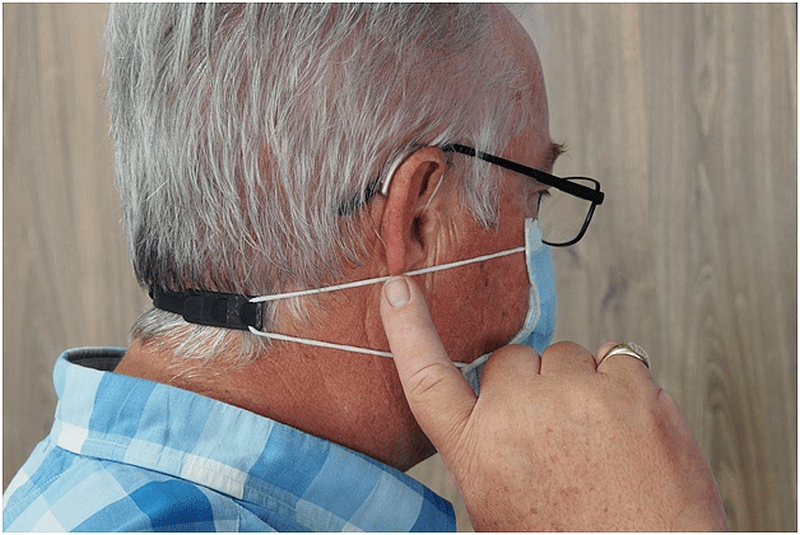Ear care is something that a lot of people don’t know how to do right. There are a lot of misconceptions, and some of them can even cause you to damage your hearing.
According to the WHO, if you are unable to hear close to 20 dB on both thresholds, that counts as hearing loss. WHO also estimates that unaddressed hearing loss affects the world’s economy to the tune of $980 billion every year.
Thus, taking care of your ears and hearing is a skill that everyone needs to learn. In this article, let us look at four key tips that you can benefit from right away.
1. Take a Close look at What Medication You Use
Certain medications, known as ototoxic drugs, have the potential to harm the delicate structures in our ears responsible for hearing and balance. These drugs might be prescribed for various conditions, from infections to high blood pressure and even cancer.
It’s not that these medications always cause issues, but being aware of the possibility is crucial. Just look at the Tepezza lawsuit cases that are being filed. It’s not something you want to put yourself through.
According to TorHoerman Law, these legal actions are against Horizon Therapeutics, the manufacturer of the popular medicine, Tepezza, used for thyroid eye disease. Apparently, the side effects of the drug include partial or permanent hearing loss, tinnitus, and other hearing issues.
Thus, paying attention to the fine print on medication labels and discussing any concerns with healthcare providers is a good habit.
2. Get Rid of the Q Tips
Q-tips were originally created by Leo Gerstenzang in the 1920s after he observed his wife using cotton-tipped sticks to clean their baby’s ears. He saw the potential for a safer tool and came up with the idea for the Q-tip, officially known as the “Baby Gays.”
Now, fast forward to today, and Q-tips have become a household name. Many people associate them with ear cleaning, even though they are not recommended for inserting into the ear canal. The packaging even includes a disclaimer about not using them inside the ear.
Its popularity comes from the gentle feel of cotton on the ear and the habit that has been passed down through generations. It’s like a comforting ritual for some.
However, health professionals often advise against inserting Q-tips into your ears.
According to Keck Medicine of USC, it is possible to accidentally push hardened ear wax deep into your ear canal. You might not even notice it happening, but do it enough times, and it is highly likely that you will damage your eardrum.
It’s a classic case of a product gaining popularity for a use it wasn’t specifically designed for. If you’re ever in need of cleaning your ears, safer methods like using drops or warm water are usually recommended.
3. Evaluate Your Environment
Living in spaces with persistent noise, whether it’s from loud fans, air conditioners, or other sources, can have various negative effects on our health. One significant impact is on our sleep quality. Continuous background noise can disrupt your sleep patterns and lead to a wide range of health issues. More importantly, it can be one of the factors that trigger conditions like tinnitus. This refers to the high-pitched ringing sound that currently has no cure.
Constant exposure to noise triggers the body’s stress response, potentially leading to elevated blood pressure, cardiovascular problems, and heightened anxiety levels.
It’s essential to consider the noise levels and how they might affect our daily lives.
Opting for quieter environments can contribute to better sleep, reduced stress, and improved mental clarity.
4. Swap IEM headphones for Speakers Whenever Possible
In-ear monitors, or IEMs, are affordable and pack a solid punch when it comes to audio quality. However, we still don’t know the long-term implications that prolonged use can have on your ears.
IEMs deliver sound directly into the ear canal and can potentially cause fatigue and damage over time. Speakers, on the other hand, distribute sound in the environment, reducing the intensity reaching the ears.
Swapping to speakers also gives our ears intermittent breaks from close, direct sound exposure. If you really love your IEMs, perhaps consider some moderation in usage at least. Balancing the use of IEMs with speakers and being mindful of volume levels can contribute to preserving our hearing health.
In conclusion, caring for your ears needs to be done with the same importance that you take care of any important organ. In fact, when you consider how vulnerable your ears are, it becomes even more critical that you take special care of them.
Thankfully, it doesn’t take much effort to keep your ears safe. Avoiding Q-tip usage, being aware of medication side effects, lowering music volume, and staying away from loud environments are all relatively easy steps.
Article Submitted By Community Writer




